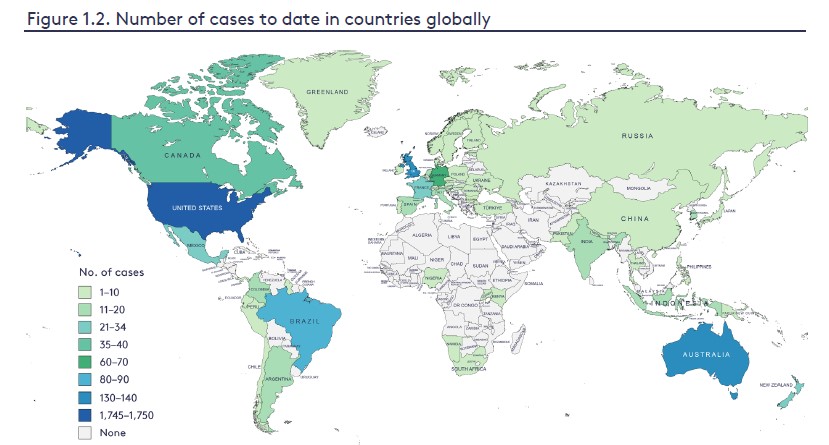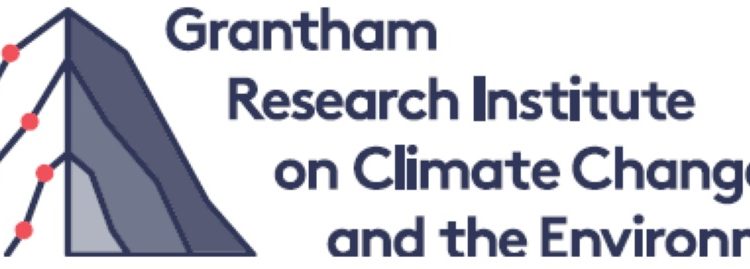Global Trends in Climate Change Litigation Report
The Grantham Research Institute on Climate Change and the Environment at the London School of Economics releases a report on global trends in climate change litigation, aimed at analyzing the latest global climate change litigations and specific trends.
The data for this report comes from Climate Change Litigation Database under Sabin Center for Climate, which covers numerous jurisdictions worldwide through the Peer Review Network of Global Climate Litigation and provides diverse and cross disciplinary samples.
Related Post: UNEP Releases Report on Global Climate Litigation
Overview of Global Climate Change Litigation
According to the Climate Change Litigation Database, there are a total of 2666 climate change litigation cases worldwide, with 70% of them occurring after the Paris Agreement was proposed in 2015. In 2023, there were a total of 233 climate change litigation cases worldwide (182 directly related to climate), a decrease from 270 cases in 2022, which may be due to some cases involving marginal climate issues not being included. Of all climate lawsuits, 87% come from developed countries, 8% from developing countries, and 5% from international organizations.
In recent years, there have been two highly anticipated trends in climate change litigation: investment law cases and international trade cases. Investment law cases refer to lawsuits filed by investors for unfair damage to their investments by other countries, such as lawsuits filed by some investors against foreign fossil fuel investment subsidy policies. International trade cases refer to lawsuits that result in negative impacts of climate change due to market access and other reasons, such as some countries’ restrictions on raw materials that may violate trade rules.

Classification of Climate Change Litigation Cases
In 2023, there were a total of 182 cases directly related to climate change. The report classifies climate change litigation cases based on factors such as plaintiff, defendant, and litigation purpose, as follows:
- Government framework cases: 15 cases in 2023, referring to lawsuits filed against economic and social climate goals and policies. These lawsuits include policy deficiencies in addressing climate change and failure to achieve climate change goals. The focus of these lawsuits is the vulnerability of individuals and communities to the impacts of climate change.
- Integrated climate considerations cases: 97 cases in 2023, referring to the incorporation of climate standards and principles into decision-making to prevent lawsuits related to harmful policies. This is currently the category with the highest number of climate lawsuits, mainly targeting new policies that fail to consider climate impacts or permits for individual project activities.
- Polluter pays cases: 5 cases in 2023, referring to lawsuits against polluters for their negative impact on climate change. This type of case usually requires the defendant to pay costs or compensate for losses, and is usually combined with other cases. At the same time, its progress time is relatively long, and the probability of successful litigation is low.
- Corporate framework cases: 3 cases in 2023, referring to lawsuits that require companies to change their climate decisions. This type of lawsuit attempts to change a company’s decision to prevent it from continuing to engage in high carbon emission activities, and is usually directly related to the warming targets of the Paris Agreement and the company’s net zero strategy.
- Failure to adapt cases: 8 cases in 2023, referring to lawsuits in which companies fail to consider climate risk cases. These lawsuits target the company’s failure to consider climate risks, which could result in reasonable and foreseeable damages. Due to the inability to adapt to climate risks that are difficult to measure, these litigation cases are relatively rare.
- Transition risk cases: 1 cases in 2023, referring to lawsuits where the management or relevant personnel of a company fail to manage transition risks. These lawsuits target companies’ failure to manage the risks of climate change and net zero transition, with a greater focus on the negative impact of transition risks on their financial performance.
- Climate washing cases: 47 cases in 2023, referring to lawsuits that question the accuracy of corporate climate contributions. These lawsuits target inaccurate descriptions and misleading advertising of companies’ contributions to transition, which is a greenwashing issue in the climate field. Cases usually revolve around climate claims in specific products and services.
- Turning off the taps cases: 6 cases in 2023, referring to lawsuits against companies providing funding for projects with inconsistent climate actions. These lawsuits will amplify the importance of climate risks in decision-making, thereby increasing the cost of high carbon emission activities and reducing funding for these activities.
Reference:
Global Trends in Climate Change Litigation: 2024 Snapshot
ESG Advertisements Contact:todayesg@gmail.com








